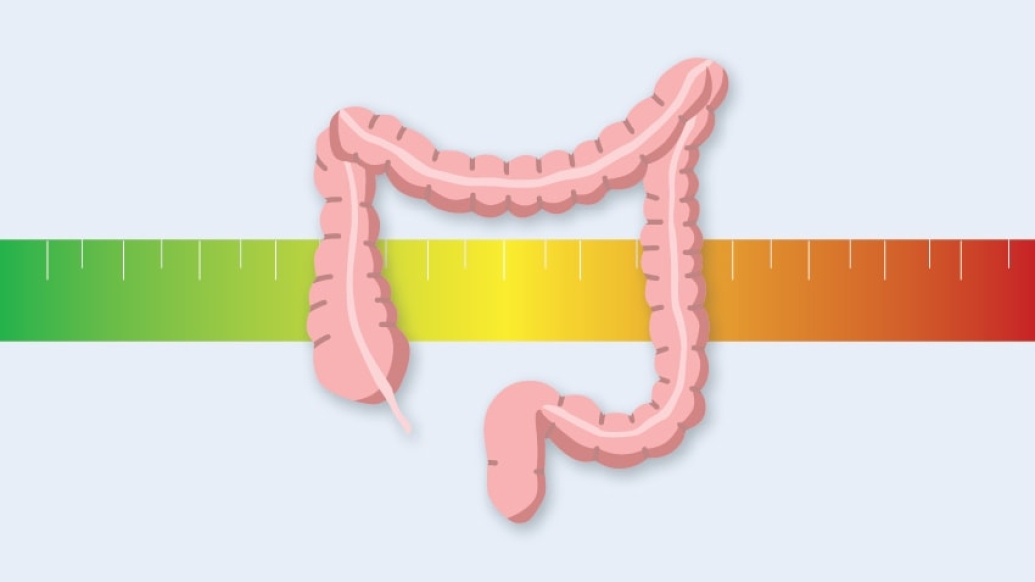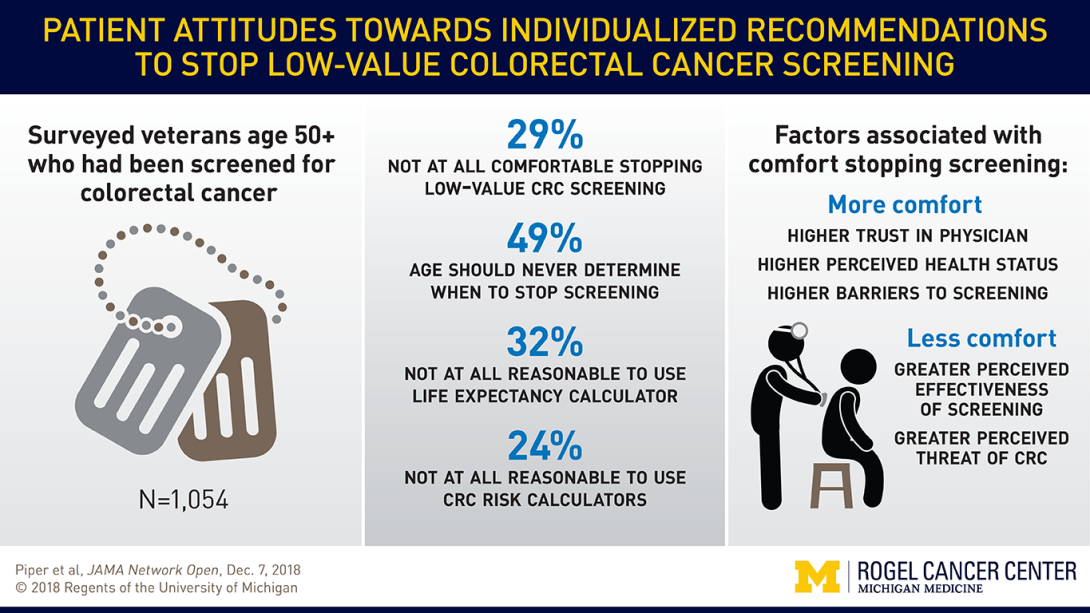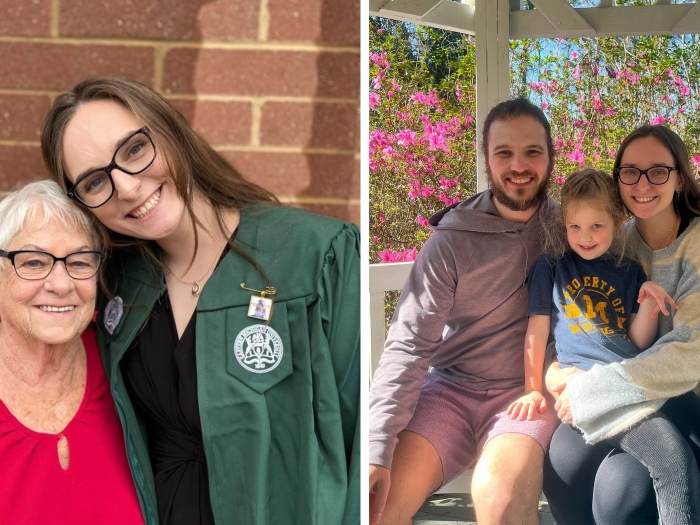A study of colonoscopy recipients finds mixed feelings about using age, life expectancy and risk calculators to guide screening. How doctors can steer the conversation.
12:00 PM
Author |

Get screened. Screening saves lives.
It's a simple message, but as screening recommendations for colorectal and other cancers become more complicated, what happens when the message becomes "maybe get screened" or even "stop screening"?
LISTEN UP: Add the new Michigan Medicine News Break to your Alexa-enabled device, or subscribe to our daily audio updates on iTunes, Google Play and Stitcher.
A new study in JAMA Network Open finds nearly one-third of veterans who underwent recommended screening colonoscopies were uncomfortable with the idea of stopping these screenings when the personal benefit was expected to be low.
"The 'get screened' message is simple, aimed at getting people to complete the prevention task. But prevention is only part of the story," says Sameer Saini, M.D., M.S., an associate professor of gastroenterology at Michigan Medicine and a research scientist at the VA Ann Arbor Center for Clinical Management Research.
"If a person's risk of colorectal cancer is really, really low, screening is not going to help that person," says Saini, the study's senior author. "Also, cancers take time to develop into something that causes symptoms or death.
"If someone's life expectancy is limited, identifying cancer and treating it may not improve or extend their life."
Data vs. preference
To gauge attitudes about the practice, Saini and colleagues surveyed 1,054 veterans ages 50 and older who had recently received a screening colonoscopy.
MORE FROM THE LAB: Subscribe to our weekly newsletter
Participants were given a hypothetical scenario that explains current age-based colorectal cancer screening recommendations and how health care providers might use risk calculators for life expectancy, colorectal cancer risk and overall benefit of screening to help guide who needs screening.
The U.S. Preventive Services Task Force guidelines recommend tailoring colorectal cancer screening for people ages 76 to 85 based on two factors:
-
Overall health, which indicates the patient's life expectancy
-
Prior screening history, which indicates the patient's risk of developing colorectal cancer
This study is one of the first to assess patient attitudes toward discontinuing screening based on risk calculators.
Participants were asked how comfortable they would be with not undergoing screening colonoscopies if they had other serious health problems and their doctor recommended against screening.
It is important for us to start thinking about what type of information we are giving patients that is informing or building their mental models about screening.Sameer Saini, M.D., M.S.
Twenty-nine percent said they would be not at all comfortable, while 13 percent said they would be extremely comfortable. And 29 percent said they would go against their doctor's recommendation and continue with screening.
"We need to build the bridge between how we think about screening as experts, based on data and overall benefit, and how our patients think about screening, which is often driven by emotion and other core beliefs," says lead study author Marc S. Piper, M.D., M.Sc., a former gastroenterology fellow at Michigan Medicine.
"Data can provide our patients with a better sense of the risks and benefits, but we may be delivering a message that is fundamentally at odds with their attitudes and preferences."

Shifting the conversation
More than a third of participants were hesitant about using age to decide when to stop colorectal cancer screening, the study found. Participants also expressed distrust about the accuracy of life expectancy calculators and colorectal cancer risk calculators.
SEE ALSO: Is Colonoscopy Really King for Colorectal Cancer Detection?
"People don't trust our ability to predict the future," says Piper, now a gastroenterologist at Digestive Health Associates and an assistant professor of medicine at Michigan State University. "Also, as others have shown, talking about life expectancy can be uncomfortable.
"We need to shift the conversation to talk about the benefits of screening rather than life expectancy, or we risk turning people off."
Participants who were more comfortable with stopping screening had more trust in their physician and rated their own health more highly. Those with high barriers to screening also were more comfortable with stopping.
On the other hand, the more people perceived screening to be effective and colorectal cancer to be a threat, the more likely they were to be uncomfortable with stopping screening.
"It is important for us to start thinking about what type of information we are giving patients that is informing or building their mental models about screening," Saini says. "If we were doing our job right, it would not be a surprise to them that screening might not be beneficial across their whole life span."
The authors suggest that doctors explain before someone's first screening colonoscopy that the benefit changes over time. As people get older, these screenings will provide more information about their risk of developing cancer — and it may reduce or eliminate the need to keep screening.
"As we move toward personalized screening recommendations, we must consider how patients think about cancer prevention," Piper says. "If we communicate these ideas upfront, it may be less jarring when the screening message changes later in life."

Explore a variety of healthcare news & stories by visiting the Health Lab home page for more articles.

Department of Communication at Michigan Medicine
Want top health & research news weekly? Sign up for Health Lab’s newsletters today!





